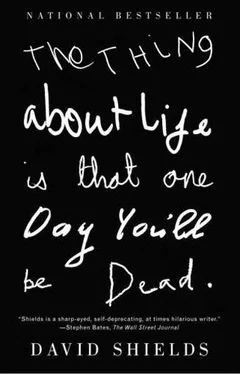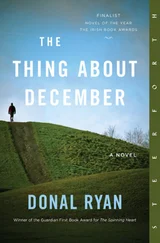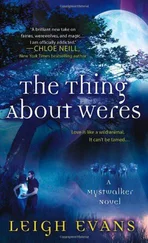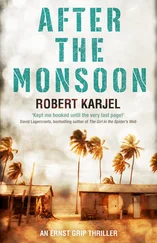I am, I am, but the hat proves nothing. Only very recently I happened to discover that Schildkraut died in 1964, which means that Emily—sweetly seeking my father’s appreciation—must have invented the entire story, my father invented the story, I’ve got the details wrong, or being in a family is indistinguishable from playing telephone. And yet the photograph in My Father and I of Schildkraut kissing Susan Strasberg on the forehead in The Diary of Anne Frank mimics exactly the melodramatic bad acting in two photographs of my father kissing Emily when she was very little. In so many photographs of “Pepi” or my father or me is this certain quality of mugging hungrily, of pretty-boyness (me till I was 12, my father into late middle age, Schildkraut until he was dead), of stilted posedness, of on-your-knees-before-the-camera obsequiousness, of needing to be liked by the lens, of peasant smilingness, of over-reliance upon previous modes of appearing in pictures…
Schildkraut also has what is to me a disturbing-because-familiar detachment toward his own feelings. “Maybe there was no such thing as love in real life,” he writes. “These all-consuming agonies and ecstasies of love existed only on the stage.” I once wrote about stuttering that “it prevents you from ever entirely losing self-consciousness when expressing such traditional and truly important emotions as love, hate, joy, and deep pain. Always first aware not of the naked feeling itself but of the best way to phrase the feeling so as to avoid verbal repetition, you come to think of emotions as belonging to other people, being the world’s happy property and not yours—not really yours except by way of disingenuous circumlocution.”
The tightest warp and woof I can weave comes from the sound of the syntax. Joseph says of Rudolph, “He was passionately in love with the sound of words. They intoxicated him.” Joseph says of his mother, “She had an acute business sense, a talent for making every kreuzer count.” My father says, “You can bet all the borscht in Brownsville on that.” My father writes, “It’s been at least a year since that coffee-klatch-cum-current-events-discussion-group held its final meeting, but many people at Woodlake still talk about the explosive events of that fateful day.” I write, “The tightest warp and woof I can weave comes from the sound of the syntax.” Do you hear the keynote—the incessant buzz and hum of alliteration? I point out to my father what I see as the link between Schildkraut’s alliteration-dependent writing style, my father’s style, and my own (as well as my stutter), and he writes back, “About Joseph Schildkraut’s style: I believe the book he wrote in collaboration [ My Father and I, “as told to Leo Lania”] is the only thing he’s ever written. Solo, or with somebody’s help. Don’t know how much his collaborator did and what Pepi contributed. My style? Strictly journalese. Marked—riddled?—by too much, far too much, alliteration. The O. Henry influence: as a young boy of 7 or 8, I read his stories over and over. My brother Phil had won a complete set of O. Henry in a writing contest and there they were for me to devour—and (sadly) to incorporate, lock, stock, and barrel, into my own writing.”
A decade ago I told my father that I hoped to travel someday to Eastern Europe to trace the Schildkraut ancestry, and he responded, “That would be a dream trip—the two of us investigating the Schildkraut strain in Austria, Germany, and the Ukraine. Whenever you’re ready, I’ll be ready. It would be a great adventure.” (We’ve never gone.) I explained that what I’m most interested in is my need to get him to tell the stories over and over and over again and his ceaseless capacity to reinvent and extend the material. He replied (and this is what I’ve come to recognize as my father’s signature and see projected forward in myself and backward in Schildkraut: an unshakable self-consciousness), “Writing about it, you’ll probably use and exploit how I arrogated to myself the ‘cousins, yeah, they’re probably second cousins’ relationship. And how I told and retold—dined out a lot on it, as the saying goes—the story of my one actual involvement, in person, with Pepi: the Einstein memorial night, etc.”
Well, so, as my father likes to say, what? What is this correlation-seeking but a ghoulish attempt to backform a bloodline to star power? What proof is it, in any case, to find common traits in a putative relative’s memoir? Is he or isn’t he? Was he or wasn’t he? I don’t know, I can’t know, and I’ll never know; why, then, is it important for me to believe there’s a link? Why do I care about being related to someone who—on the basis of my father’s stories and The Diary of Anne Frank —appears to be a singularly unpleasant human being and painfully ham-fisted actor? Star-fucker: name-dropper: strain-strainer. My father now informs me that he believes—although he can’t be absolutely certain—that we’re related to Robert Shields (né Schildkraut), of the former San Francisco mime duo Shields and Yarnell, and I can’t help it: I think, well, then, maybe I’m also related to Brooke Shields; toward the end of Endless Love, when she’s crying in that dark New York hotel room, trying to say good-bye to David, and her hair is braided and rolled up in a bun, she does, it seems to me, especially in the mouth and chin area, look at least a little the way I sometimes looked as a teenager.
In 1986, Denys Arcand released his movie The Decline of the American Empire, an obsessive talkathon on the subject of sex. Seventeen years later, the sequel appeared— The Barbarian Invasions, an obsessive talkathon on the subject of death. The film about sex is called Decline. The film about death is called Invasions. A point is being made here:
When groups of verve monkeys feed, several males sit with their backs to the group and brandish their genitals to ward off potential scavengers. If an unknown animal approaches, male verves get an erection and make a threatening face. Fighter pilots, when escaping dangerous situations, release extremely high levels of epinephrine (the hormone released by stress) and sometimes ejaculate.
Louis Réard, a French auto engineer who also ran his mother’s lingerie business, designed a two-piece swimsuit. Four days before he presented the swimsuit to the public, the U.S. military exploded a nuclear device near a group of small islands in the Pacific known as the Bikini atoll. On July 5, 1946, Réard unveiled the swimsuit and claimed the bikini was named for the beauty of the islands rather than for the atomic blast.
Men who are hanged sometimes have erections and orgasms, which are caused by the snapping of the spinal cord; when the nerves beneath the neck are severed from the spine, the spasm can create a mechanical, reflexive ejaculation. An engraving by Daumier shows a torture chamber filled with skeletons in chains and a hanged man ejaculating. In Marquis de Sade’s Justine, Thérèse helps Roland achieve orgasm by briefly hanging him; afterward, he exclaims, “Oh, Thérèse! Oh, those feelings are indescribable. They exceed everything!” In Ulysses, the Croppy Boy “gives up the ghost. A violent erection of the hanged sends gouts of sperm spouting through his dead clothes on to the cobblestones. Mrs. Bellingham, Mrs. Yelverton Barry, and the Honourable Mrs. Mervyn Talboys rush forward with their handkerchiefs to sop it up.” Pathologist Sir Bernard Spilsbury’s handwritten autopsy note of an early twentieth-century hanging states that there was no “seminal effusion” on this occasion, which implies that it often occurred on other occasions. Spilsbury. The photograph of the execution of the Lincoln conspirators in 1865 shows one of the men, Lewis Powell, with an erection after he was hanged.
Читать дальше












